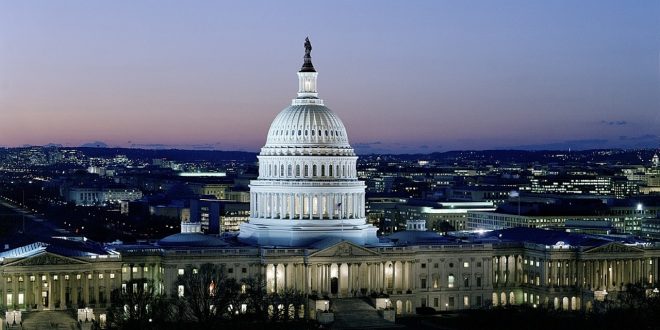On an individual level, sustainability may mean taking reusable bags to the grocery store, whipping out a metal straw at a restaurant or committing to composting. These efforts are commendable and beneficial on some level, but they won’t create the level of change at the pace that’s now necessary to save the planet. Rather, this level of sustainability calls for global involvement on a very large scale. This calls for intervention by a people’s government.
Luckily, both local and federal governments have made efforts in recent years to join the sustainability movement. From creating tax incentives to funding green energy research, politicians have noted public sentiment and acted accordingly. Yet, there’s still more to do before society becomes even close to 100% sustainable. For better or worse, the government will play a huge part in the future of Earth’s sustainability in the coming years.
Governments Have Power
Federal governments have the final say when it comes to national law and policy. However, the top tier of government typically has many hoops to jump through before finalizing these legislative efforts. Thus, as federal governments increasingly find themselves stalled by partisanship, local governments must use their power to increase sustainability within their own communities.
For instance, many local governments oversee land development and usage. By regulating new developments, they can ensure that these are built to be compact, sustainable and energy-efficient.
Additionally, through policy changes regarding societal sectors such as transportation, recreational areas and farming, local governments can promote and shape a more sustainable community. For example, they may choose to charge a tax on harmful pesticides to incentivize purchasing organic, sustainable ones. Moreover, they can implement change by making efforts like recycling, composting and gardening more accessible to the general public.
Efforts Need Funding
While local governments may be more effective at creating lasting, functional, small-scale change, the federal government still has the responsibility — and privilege — of funding large-scale sustainability efforts.
Oftentimes, the federal government is the only one with enough money and power to fund these efforts. For instance, the government often gives universities hundreds of thousands of dollars in grants so they might find sustainable solutions. The government might also appoint and pay their own contractors to ensure the sustainable completion of projects.
The federal government also has the power to create tax incentives, much like local government. Through tax credits and other incentives, the government can encourage businesses and even the public to implement green energy, develop technologies that reduce carbon emissions and comply with regulations. Most corporations have already incorporated sustainability strategies to appease their stakeholders and comply with or benefit from federal incentives.
Sustainability Deserves Global Discussion
While individual effort is commendable and important, personal sacrifice alone can’t be the solution to a global issue. Sure, humans may eat too much meat or drive places when they could bike. But, ultimately, global change rests in the hands of governments.
And a change of such magnitude merits global discussion. How can India reduce its air pollution? How can the United States help? What global policies might governments agree upon in order to create a more sustainable future? Only international conversation at a governmental level will render possible solutions to these problems.
However, this isn’t to say the individual has no role to play in sustainability. Rather, individuals have the immense responsibility of demanding change within their own governments. Citizens must involve themselves in local governments and urge others to do the same. Moreover, they should make an effort to stay informed on current issues and call for urgent action from politicians. In this way, people can incite real change. Still, we’ll have to work together if we want anyone important to listen.


